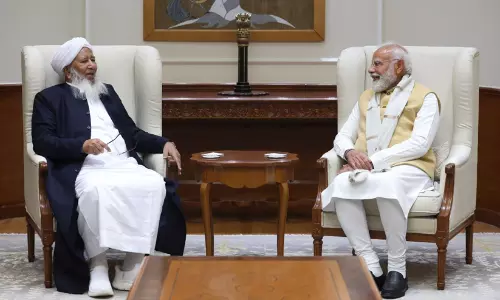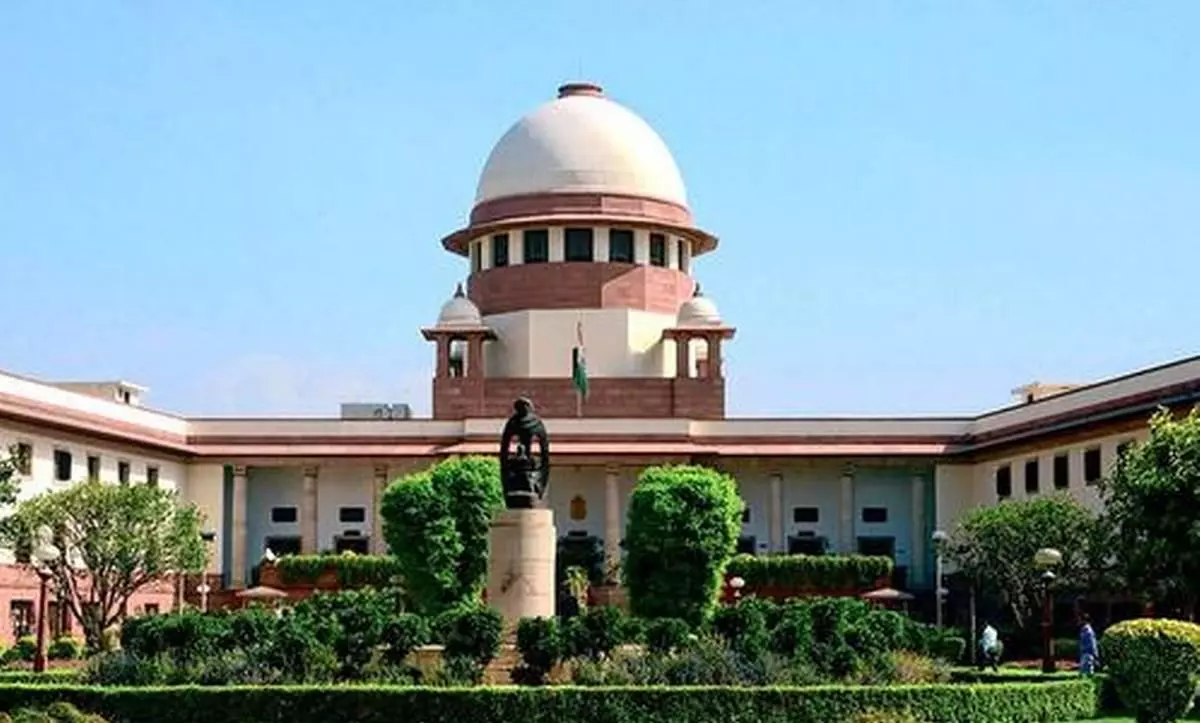
Detainee should be a threat to public order to validate preventive detention: SC
text_fieldsNew Delhi: The Supreme Court has made it clear that preventive detention can only be passed if it is found that the activities of the possible detainee could disturb public order.
The court made the statement as it quashed the Telangana government's detention order against a man who was booked in several criminal cases related to fraud and forgery. The apex court said that for 'public order' to be disturbed, "there must, in turn, be a public disorder," affecting the society at large.
A close reading of the detention order, under the Telangana Prevention of Dangerous Activities Act (TPDAA), makes it clear that it was issued not on any apprehension of widespread public harm, danger or alarm but only because the detenu was successful in obtaining anticipatory bail/bail from the courts in each of the five FIRs (first information report) against him, the apex court said.
It said that while it cannot seriously be disputed that the detenu may be a white-collar offender as defined under provisions of TPDAA, yet a preventive detention order can only be passed if his activities adversely affect or are likely to adversely affect the maintenance of public order.
The detention order was issued against the man under the provisions of the TPDAA dated September 28, 2020, and it referred to the five FIRs that have been filed against him, under sections of forgery, fraud and criminal breach of trust. However, he managed to get anticipatory bail/bail in all the cases against him.
A bench of Justices RF Nariman and BR Gavai allowed the appeal against the Telangana High Court order dismissing the plea filed by the man's wife, challenging the detention order passed against him under the TPDAA. The top court said the facts contained in the FIRs are similar in nature and range from October 2017 to December 2019.
The bench noted that public order, as defined under the Act, is to be harm, danger or alarm or a feeling of insecurity among the general public or any section thereof or a grave widespread danger to life or public health. Mere contravention of law such as indulging in cheating or criminal breach of trust certainly affects 'law and order' but before it can be said to affect 'public order,' it must affect the community or the public at large.
"We, therefore, quash the detention order on this ground. Consequently, it is unnecessary to go into any of the other grounds argued by the learned counsel on behalf of the petitioner. The impugned judgment is set aside and the detenu is ordered to be freed forthwith. Accordingly, the appeal is allowed," the bench said.
It said that in the facts of the case, it is clear that at the utmost, a possible apprehension of breach of law and order can be said to be made out, if it is apprehended, that the detenu, if set free, will continue to cheat gullible persons.
It said that it may be a good ground for the state to appeal against the bail orders granted and/or to cancel bail but certainly cannot provide the springboard to move under a preventive detention statute. The bench, while referring to earlier verdicts of the court in Madhu Limaye case of 1970, on the interpretation of' public order' said that to tear these observations out of context would be fraught with great danger when it comes to the liberty of a citizen under Article 21 of the Constitution of India.
When a person is preventively detained, it is Articles 21 and 22 that are attracted and not Article 19. Further, preventive detention must fall within the four corners of Article 21 read with Article 22 and the statute in question, it added.
The top court said that to therefore argue that a literal meaning must be given to the expression 'public order' in the context of a preventive detention statute is wholly inapposite and incorrect.
On the contrary, considering that preventive detention is a necessary evil only to prevent public disorder, the Court must ensure that the facts brought before it directly and inevitably lead to harm, danger or alarm or feeling of insecurity among the general public or any section thereof at large, it added.
There can be no doubt that what is alleged in the five FIRs pertain to the realm of 'law and order' in that various acts of cheating are ascribed to the detenu which are punishable under the three sections of the Indian Penal Code set out in the five FIRs."
The bench said that if a person is granted anticipatory bail/bail wrongly, there are well-known remedies in the ordinary law to take care of the situation and the state can always appeal against the bail order granted and/or apply for cancellation of bail.
It said that in the facts of the present case, the main ingredients like harm, danger or alarm or feeling of security among the general public spoken of in the Act are totally absent and the real reason being that the man was successful in obtaining anticipatory bail/bail orders in the cases lodged against him.
(Inputs from PTI)























